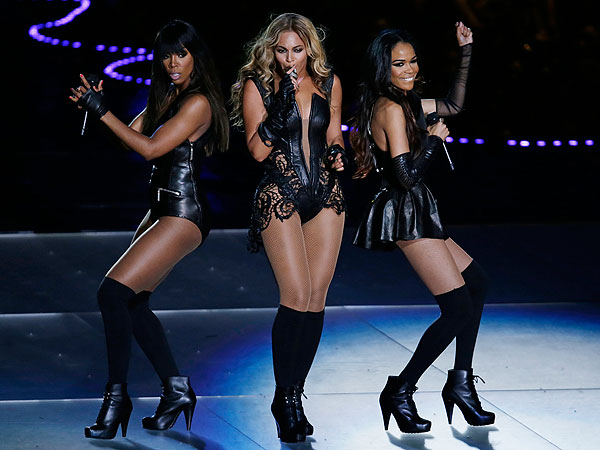SAN FRANCISCO (Reuters) – Zynga Inc, the one-time Silicon Valley darling that has been wrestling with a months-long exodus of online gamers, reported an unexpected fourth-quarter profit on Tuesday after embracing steep cuts and shifting forward deferred revenue.
The results assuaged investors who had feared the company might be in free fall and boosted Zynga shares by 7 percent to $ 2.93 in after-hours trade.
Still, the company reported fourth-quarter revenues of $ 311 million, virtually unchanged from a year ago and down from the prior quarter. And Zynga’s underlying business appeared to be continuing its downward slide, as the maker of “CityVille 2″ and other games projected revenue could shrink for a third sequential quarter.
Zynga forecast revenue for the first quarter of 2013 of between $ 255 million and $ 265 million, a roughly 20 percent drop from the same quarter in 2012.
The company attributed the weak sales forecast to a “light slate” of new games planned for quarter.
“The highlight was it was a good quarter and good free cash flow but outlook and guidance is somewhat cloudy,” said Arvind Bhatia, a Sterne Agee analyst.
Once hailed as one of Silicon Valley’s fastest growing companies, Zynga suffered a dramatic reversal in 2012, when users began to abandon its red-hot games like “CityVille.” The company was also caught off-guard by a sweeping, permanent change in consumer behavior, as people spent more time on their mobile phones instead of desktop computers – the platform for Zynga’s most lucrative, Facebook-based games.
The company went public in late 2011 at $ 10 a share. By November, its stock had dipped as low as $ 2.10, a price that valued the company only narrowly above the value of its securities, cash and assets.
But Zynga on Tuesday reported a quarterly profit of 1 cent per share on an adjusted basis, beating expectations for a loss of 3 cents per share, according to analysts polled by Thomson Reuters I/B/E/S.
COST CUTTING
In October, Zynga’a chief executive, Mark Pincus, laid off staff and announced $ 200 million in stock buybacks after the company forecast a loss for the December quarter.
To begin the company’s turnaround, he also vowed to make smartphone-based games a centerpiece of Zynga’s line-up, and to crack down on internal delays that affected game launches.
Excluding certain items such as one-time stock compensation costs, Zynga achieved profitability by sharply paring costs on research and development and administration, as well as by shifting forward $ 50 million in future guaranteed revenue to be counted in the current quarter.
New bookings fell to $ 261.2 million, a decline of 15 percent from a year ago.
Executives told analysts on Tuesday’s conference call that the company would adopt a more conservative game development strategy and discard titles that fail to become hits – a departure from earlier days when the high-flying startup spent lavishly on developing a wide array of game offerings.
For instance, CityVille 2, the sequel to Zynga’s most successful game to date, would be shuttered because it was underperforming, executives said.
“Not every launch was a success,” said Chief Operating Officer David Ko. “We’re taking a more disciplined approach to managing our game portfolio.”
FACEBOOK TIES UNRAVELED
Zynga’s management also played up the strength of its own gamer network, weeks after Zynga and Facebook dissolved a longstanding partnership that gave Zynga beneficial privileges on the Facebook platform.
For years, Zynga and Facebook enjoyed a closely symbiotic relationship: The world’s No. 1 social network fed new gamers to Zynga games by tweaking its recommendations algorithms and exposing Zynga games to Facebook users, while Zynga funneled millions in fees back to Facebook.
But Facebook has recently courted other developers to make games on its platform to diversify its revenue streams, while Pincus pushed Zynga to make itself less dependent on Facebook and more focused on mobile games.
Pincus told analysts Tuesday that the company’s own gamer network and websites, rather than Facebook, now represents Zynga’s “most important distribution channel.”
In an interview, Barry Cottle, Zynga’s chief revenue officer, said more than two-thirds of new game downloads were spurred by social communication tools Zynga developed for its own players, and that Zynga could harness social gaming without Facebook.
“We have a strong audience base through our own channels,” Cottle said. “And we’ve got a lot of experience here at Zynga that was built on understanding how players like to interact in games.”
(Reporting By Gerry Shih; Editing by Leslie Adler and M.D. Golan)
Internet News Headlines – Yahoo! News
Title Post: Zynga profit tops views, but it forecasts lower revenue
Url Post: http://www.news.fluser.com/zynga-profit-tops-views-but-it-forecasts-lower-revenue/
Link To Post : Zynga profit tops views, but it forecasts lower revenue
Rating:
100%
based on 99998 ratings.
5 user reviews.
Author:
Thanks for visiting the blog, If any criticism and suggestions please leave a comment











